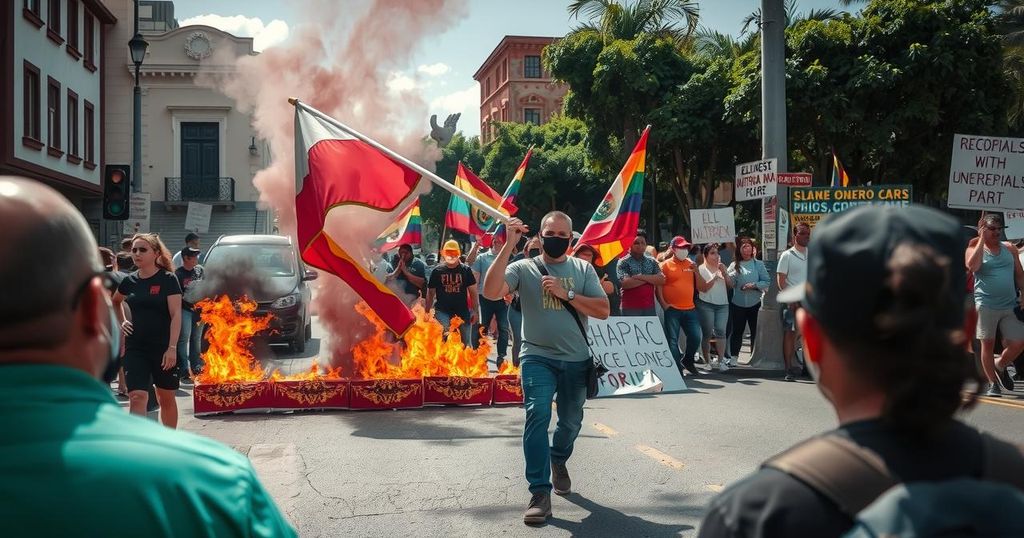Political Turmoil in Bolivia: Reflections of a Broader Latin American Discontent
Bolivia is embroiled in protests over political strife within the ruling MAS party, particularly between President Luis Arce and former President Evo Morales. This unrest mirrors similar discontent seen in Peru and Colombia, highlighting a broader trend of dissatisfaction across Latin America. Economic challenges and allegations of misconduct exacerbate the situation, raising questions about the future of political leadership in the region as the 2024 elections approach.
In recent months, Bolivia has been engulfed in demonstrations and violent confrontations that have persisted for over two months. This unrest is not isolated, as numerous Latin American countries—such as Ecuador, Peru, and Colombia—are witnessing similar discontent among their populations. The turmoil in Bolivia primarily revolves around internal strife within the ruling Movement for Socialism (MAS) party, especially the power struggle between President Luis Arce and former President Evo Morales, whose influence is visibly waning in the nation’s political landscape.
Evo Morales, celebrated for uplifting Indigenous and rural populations since his rise to power in 2006, faces a dual challenge: Arce’s independence from his guidance and allegations of serious wrongdoing, including statutory rape charges brought against him. The socio-economic crisis, heightened by fuel shortages, rising prices, and a deteriorating justice system, has further driven public anger. As turmoil unfolds in Bolivia, it reflects a broader instability gripping the region.
Protests have not only shaken Bolivia; countries like Peru and Colombia also grapple with significant civil unrest. In Peru, President Dina Boluarte’s administration suffers from exceptionally low approval ratings, stemming from pervasive corruption and escalating economic woes coupled with violent interactions between citizens and security forces. Similarly, in Colombia, President Gustavo Petro confronts substantial opposition to his social reforms, amid accusations of overreach and mismanagement.
Ecuador’s predicament is equally troubling, facing armed conflicts and disruptive public demonstrations fueled by crime-related threats and frequent power outages. These episodes of social unrest call attention to the region’s political instability and citizens’ discontent.
The upcoming presidential elections in Bolivia might signify a transformative moment in the political landscape, particularly as the MAS party grapples with internal divisions and growing public dissatisfaction. Despite the ongoing protests, there are currently no opposition forces capable of obtaining similar support as the MAS party. The future remains uncertain, but as conditions unravel, the potential for profound political change looms large.
The recent spate of protests across Latin America, particularly in Bolivia, has come to the forefront, highlighting the level of unrest and dissatisfaction with governmental governance and policies. Bolivia is experiencing intense political maneuvering within the ruling MAS party, which has been at the helm of power for two decades. This internal discord has been further exacerbated by pressing economic challenges, including inflation and resource shortages, compelling citizens to voice their grievances through protests. The parallels in discontent seen in Peru and Colombia underscore a significant regional trend of increasing instability and public resistance against perceived inadequacies in governance.
In conclusion, the turmoil in Bolivia exemplifies a broader phenomenon of civic unrest permeating various South American countries. As political tensions rise within the MAS party and economic challenges worsen, the prospect of significant political transformation appears imminent. The events unfolding in Bolivia could serve as a microcosm of a larger regional movement towards accountability, reform, and perhaps, a reevaluation of leadership priorities as elections approach in 2024.
Original Source: www.firstpost.com




Post Comment